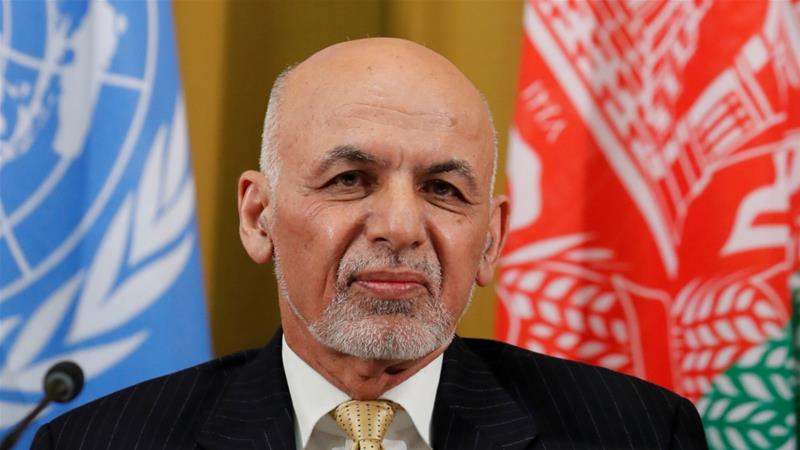by Safiullah Taye
 At last month's Geneva Ministerial Conference on Afghanistan, it was clear that the presidential elections were less than five months away. Afghan President Ashraf Ghani put a lot of effort into making sure he appeared to be the right man for his job.
At last month's Geneva Ministerial Conference on Afghanistan, it was clear that the presidential elections were less than five months away. Afghan President Ashraf Ghani put a lot of effort into making sure he appeared to be the right man for his job.
He took the opportunity to read out a list of achievements in the areas of security, women's rights, justice and the anti-corruption effort. As usual, international donors applauded the achievements, re-affirmed their support for the Afghan government, and pledged more military and humanitarian aid.
But President Ghani did not stop there. He alsoannounced a "roadmap to peace" his administration had prepared in order to launch peace talks with the Taliban. As part of that plan, he announced the formation of a 12-members team, headed by presidential chief of staff Salam Rahimi, to engage in directnegotiations with the Taliban. Ghani made it clear that the peace process has to be "Afghan-owned and Afghan-led", implying his administration cannot be excluded from the process.
The Afghan president has been facing major challenges at home, suffering a number of major failures on the political and security fronts. Against the backdrop of a deteriorating situation at home, launching and owning a peace process seems to be the only achievement that can ensure his political survival and potential re-election next year.
In this sense, the conference in Geneva was an opportunity for him to convince the international community that the Afghan government possesses the operational capacity to bring the Taliban to political reconciliation through diplomatic means. Ghani also declared that he was running in the next presidential race in order to "finish the job" and warned the international community of dire consequences if his reforms and peace plan were abandoned.
But by linking his presidential bid to the success of peace talks, Ghani is making a risky move. Past attempts to start talks with the Taliban by both him and former President Hamid Karzai have failed and he is already facing a number of challenges that put his success in doubt.
First and foremost, the Taliban have demonstrated a number of times that they do not see a reason to negotiate with Ghani; they see him as a Western puppet and prefer to reach out directly to major international players, including the United States.
Second, Ghani's peace initiative has been criticised by different stakeholders, including Afghan political figures and some factions of the civil society. The critics have repeatedly raised concerns about the lack of transparency over the terms of negotiations and have warned against concluding a deal that would roll back some of the achievements that have been made in recent years in areas such as girls' education, political participation and economic development.
Third, there are some players in the international community who are already looking into direct engagement with the Taliban, bypassing Ghani's administration. Russia and the US, for example, have recently held talks with the Taliban, without actively engaging the Afghan government.
Ghani tried hard to undermine the Moscow-sponsored conference on Afghanistan - initially scheduled for August - by refusing to participate; when Russia made clear its commitment to it, he asked for it to be postponed. In November, when the Russians pushed forward with the event, despite Ghani's protestations, he was forced to send an unofficial representative.
A month earlier, the US strategically kept the Afghan government out of its meeting with the Taliban in Doha. US Special Representative for Afghanistan Reconciliation Zalmay Khalilzad met representatives from the Taliban and discussed a number of issues, including the withdrawal of US troops.
By engaging directly with the Taliban, countries like the US and Russia are able to pursue their own geopolitical interests. The US is eager to stabilise Afghanistan and secure its continuing presence in the country to stave off Chinese, Iranian and Russian influence in the region. And Russia is seeking to reassert itself in Afghanistan after a 30-year absence to potentially curtail the emergence of the Islamic State of Iraq and the Levant (ISIL) on its southern flank and to open another front in its soft confrontation with the US.
But by conducting direct talks with the Taliban, the two countries demonstrate that they perceive Ghani's administration as weak and incapable of undertaking a viable peace process. Thus, the international community, led by the US and Russia, are effectively shunning the Afghan government and taking over negotiating peace on its behalf.
This is not only bad news for Ghani himself, who is hoping to use the peace talks as leverage for his re-election, but also for the Afghan state in general.
External actors bypassing elected bodies in the country could be significantly damaging to Afghanistan's political institutions. It would delegitimise the Afghan government and legitimise an armed group which has wreaked havoc in the country for decades.
In other words, if the peace process proceeds along the unilateral paths that the US and Russia have taken up, this would result in a weaker Afghan government (whether Ghani-led or not) which would undermine whatever peace agreement is eventually reached. Afghanistan needs a strong state to ensure stability and security, not a weak one.
The only way forward should be for the international community to channel any peace initiative through the Afghan government and institutions. The Afghan people must be part of the process for peace to truly be achieved. They must also be free to decide who gets to lead this effort on their behalf - Ghani or someone else - when the elections are held next April.
No comments:
Post a Comment